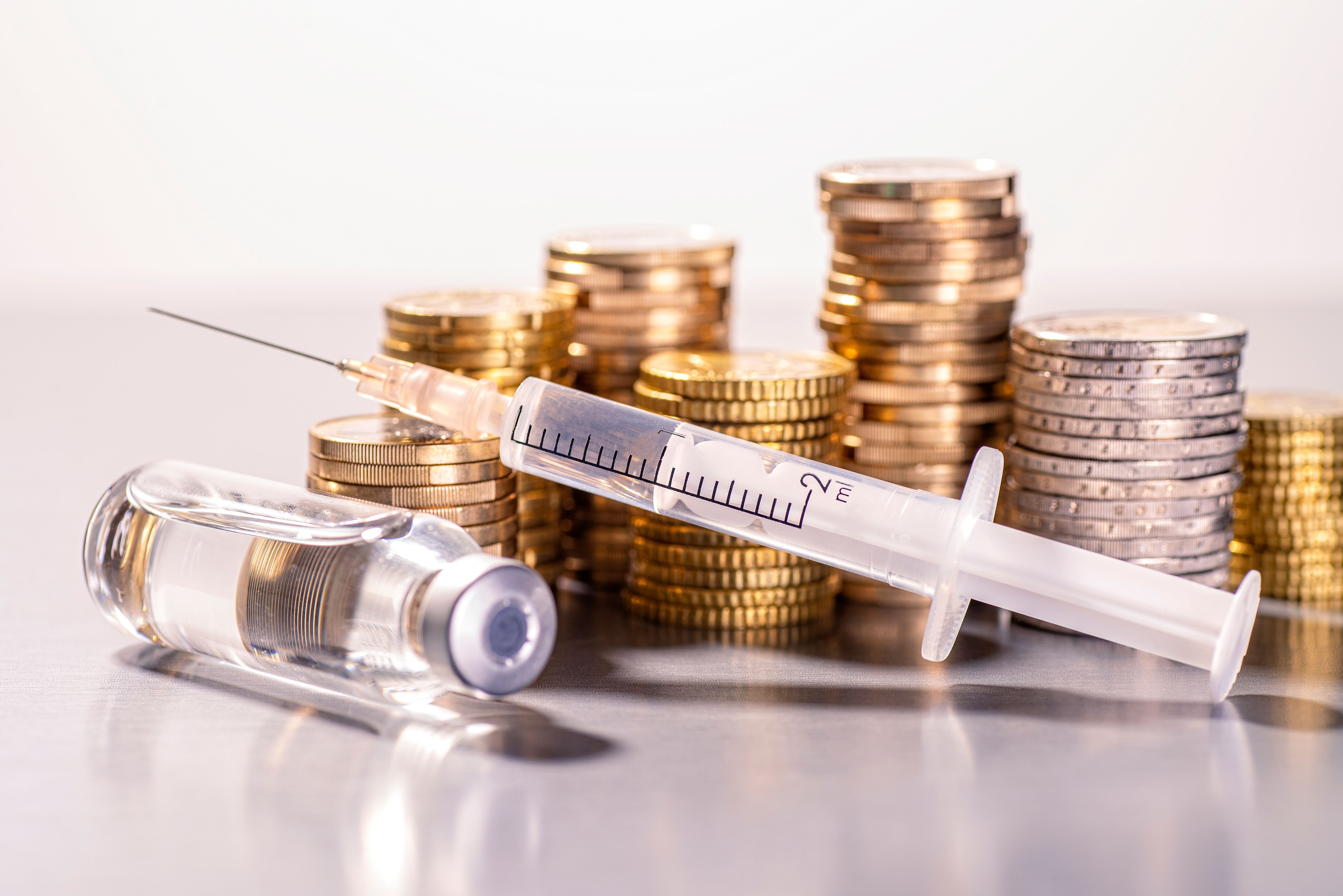- Bone Health
- Immunology
- Hematology
- Respiratory
- Dermatology
- Diabetes
- Gastroenterology
- Neurology
- Oncology
- Ophthalmology
- Rare Disease
- Rheumatology
Blue Shield of California Lowers Humira Biosimilar Costs, Challenges PBM Pricing
Blue Shield of California will offer an adalimumab biosimilar at a price that is 75% less than the reference product Humira for the monthly dose.
This was originally published on The American Journal of Managed Care® (AJMC®). This version has been lightly edited.
The adalimumab biosimilar Idacio (adalimumab-aacf) will be available to beneficiaries of Blue Shield of California at a steep reduction over the price of the reference product (Humira), which treats patients with inflammatory diseases.1 The biosimilar will be purchased at a net price of $525 per monthly dose compared with the $2100 net market price for the originator.
Blue Shield of California will offer an adalimumab biosimilar at a price that is 75% less than the reference product Humira for the monthly dose. | Image credit: gopixa - stock.adobe.com

Over the past 2 decades, more than 300,000 Americans used adalimumab annually. Blue Shield of California reported processing an estimated 40,000 adalimumab prescriptions every year, making it necessary to find an alternative option that is affordable.
“We will no longer take part in a pharmacy system that is designed to maximize the profit of participants instead of the quality, convenience and cost-effectiveness for consumers,” Paul Markovich, CEO of Blue Shield of California, said in a statement.
Fresenius Kabi and Evio Pharmacy Solutions partnered with Blue Shield of California to facilitate cost reductions and were able to eliminate the price markups applied in traditional pharmacy benefit manager (PBM) models. Instead, Blue Shield of California asserts that its new Pharmacy Care Reimagined model will offer patients better access to biosimilars.
The collaboration between the 3 stakeholders led to agreements on aligned incentives and the removal of excess complexities that has allowed the adoption of lower-cost medications despite supply chain shortages. Nearly all patients with Blue Shield who take Fresenius Kabi’s adalimumab-aacf will pay $0 out of pocket, beginning January 1, 2025, which could help improve medication adherence.
Evio Pharmacy Solutions, a pharmacy solutions startup founded by the Blues, is directly purchasing Idacio from Fresenius Kabi in a model that is designed to minimize net costs and create transparency.2
The growing number of biosimilar drugs is increasing price transparency in the market. This is evident with the recent launch of several adalimumab biosimilars, including adalimumab-atto (Amjevita) in the US.3 Amgen, the manufacturer, applied a pricing strategy that offers discounts based on patient insurance coverage and has contributed to a steady decline in the market share of the original drug, Humira.
“Humira has drawn scrutiny for its high and inconsistent pricing from both consumers and policymakers,” said Matt Gibbs, vice president of pharmacy transformation at Blue Shield of California.1
The Biosimilars Council revealed in an analysis from this past year that both patients and health plans were missing out on billions of savings because of PBM rebate policies.4 The analysis found Humira was costing patients, employers, and health plans around $700 million in increased drug costs and fees for each month since the launch of the first biosimilar.
The Biosimilars Council is pushing for the FDA to streamline its regulatory procedures for biosimilars.5 They believe regulations are unnecessary when there are no clinical differences between a biosimilar and its reference product.
“The time is now to update and streamline the current regulatory model for biosimilars,” stated Craig Burton, executive director of the Biosimilars Council. “Around 80% of biologics currently do not have a biosimilar product in the works. Let’s reduce that percentage and pave the way for a new generation of lower-cost medications.”
References
- Blue Shield of California slashes cost of world’s best-selling drug. Blue Shield of California. News release. October 1, 2024. Accessed October 2, 2024. https://news.blueshieldca.com/2024/10/01/blue-shield-of-california-slashes-cost-of-worlds-best-selling-drug
- Evio announces groundbreaking direct purchase agreement for adalimumab biosimilar. Evio Pharmacy Solutions. News release. October 1, 2024. Accessed October 4, 2024. https://www.prnewswire.com/news-releases/evio-announces-groundbreaking-direct-purchase-agreement-for-adalimumab-biosimilar-302263346.html
- Joszt L. Biosimilar competition erodes Humira’s market share; Amjevita leads the pack. AJMC. September 22, 2023. Accessed October 7, 2024. https://www.ajmc.com/view/biosimilar-competition-erodes-humira-s-market-share-amjevita-leads-the-pack
- Jeremias S. Biosimilars Council: PBM rebate schemes cost Americans, payers $6 Billion. The Center for Biosimilars®. April 10, 2024. Accessed October 3, 2024. https://www.centerforbiosimilars.com/view/biosimilars-council-pbm-rebate-schemes-cost-americans-payers-6-billion
- Jeremias S. Biosimilars Council position paper calls for end to clinical efficacy trials for biosimilars. The Center for Biosimilars. June 4, 2024. Accessed October 7, 2024. https://www.centerforbiosimilars.com/view/biosimilars-council-position-paper-calls-for-end-to-clinical-efficacy-trials-for-biosimilars
Newsletter
Where clinical, regulatory, and economic perspectives converge—sign up for Center for Biosimilars® emails to get expert insights on emerging treatment paradigms, biosimilar policy, and real-world outcomes that shape patient care.
